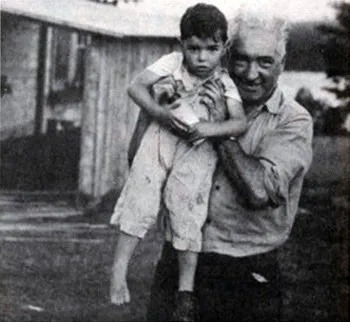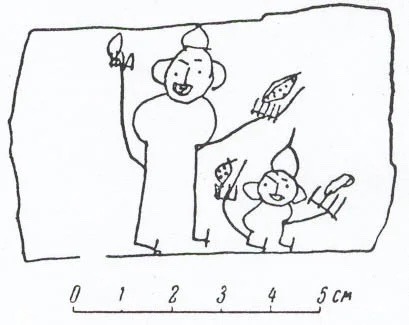Silsila (1981), India

Silsila (1981), India
More Posts from Surmayah and Others
The Mughals were conquerors, not colonizers, and equating them to the British is ahistorical at best. The Mughals settled in India, made it their home, and integrated into its cultural and political fabric, even if their rule was far from perfect. They built monuments like the Taj Mahal and Red Fort, not as gifts to the locals, but as symbols of their power—just as Hindu kings built temples and palaces for their own glory. Yes, Aurangzeb reimposed the jizya and destroyed temples, but let’s not pretend this was unique to the Mughals; Hindu rulers also destroyed rival religious sites when it suited their political agendas. The British, however, were true colonizers—they exploited India’s resources to enrich themselves, treated Indians as subhuman, and left the economy in ruins. The Mughals may have been flawed rulers, but they were part of India’s story; the British were extractive outsiders who never saw India as anything more than a cash cow. To conflate the two is to ignore the nuances of history and reduce it to a simplistic, politically convenient narrative.
Not another post whining about why “mUgHaLs WeRe nOt cOlOnizErs” like girl, they were literally foreign invaders who forced you to speak their language, broke your temples, tried eradicating your culture and collected zizya taxes motivated by religious bigotry in hopes of forcing your people to convert! At least have some shame and consideration for your ancestors.
the least you can do is be kind!!! we're all horrible human beings love is the only hope out there













a girl of fear, a woman of anger— look how we've grown
The assertion that the Mughals were colonizers is a misapplication of the term, one that conflates conquest with colonialism. Colonialism, as defined, involves the systematic exploitation of a territory for the benefit of a distant metropole, often accompanied by the imposition of foreign cultural and political structures while maintaining a clear separation between the colonizer and the colonized. The Mughals, however, do not fit this mold. They were not extractive outsiders but rather rulers who embedded themselves into the fabric of India, becoming part of its history rather than remaining external exploiters.
Let’s begin with intent. The Mughals did not arrive in India with the goal of extracting wealth to enrich a distant homeland. Unlike the British, who treated India as a resource colony to fuel their industrial revolution, the Mughals made India their home. Babur, the founder of the dynasty, may have been a conqueror, but his descendants—Akbar, Jahangir, Shah Jahan, and even Aurangzeb—saw themselves as Indian rulers. They built their capital cities in India, patronized Indian arts, and integrated themselves into the subcontinent’s political and cultural landscape. This is not colonialism; it is empire-building, a process that has been a recurring theme in Indian history long before the Mughals arrived.
On the matter of cultural imposition, the Mughals were far more syncretic than colonial. Akbar’s policies, in particular, stand out as evidence of this. He abolished the jizya tax on non-Muslims, married Rajput princesses, and incorporated Hindu traditions into his court. His Din-i Ilahi, though short-lived, was an attempt to create a unifying spiritual framework that drew from multiple faiths. While the Mughals did impose Persian as the court language, they did not seek to erase Indian languages or traditions. Persian became a lingua franca, much like English did later, but it coexisted with regional languages and cultures. This is a far cry from the British, who sought to replace Indian systems with their own, often dismissing local traditions as backward.
Economically, the Mughals cannot be equated with colonizers. While it is true that wealth was concentrated in the hands of the elite—a feature common to most pre-modern empires—the Mughals reinvested their wealth in India. They built monumental architecture, funded arts and literature, and developed infrastructure. The British, by contrast, extracted wealth on an unprecedented scale, draining India’s resources to fuel their own industrial growth. The decline of India’s share of global GDP from 25% under the Mughals to 3.4% under the British is a stark reminder of this difference. The Mughals may not have created an egalitarian society, but they did not impoverish India for the benefit of a foreign power.
As for governance, the Mughals were far more inclusive than colonial powers. Akbar’s court, while dominated by Turani and Irani nobles, included Indian Hindus and Muslims. This was a significant departure from the British, who excluded Indians from positions of real power until the very end of their rule. The Mughals’ administrative system, the mansabdari, was open to Indians, and many Rajputs and Marathas rose to prominence within it. The British, on the other hand, maintained a rigid racial hierarchy, treating Indians as subjects rather than partners.
Finally, let’s address the cultural legacy. The Mughals are remembered not as foreign occupiers but as integral to India’s history. Their architecture, from the Taj Mahal to the Red Fort, is celebrated as part of India’s heritage. Their contributions to art, literature, and cuisine are woven into the fabric of Indian culture. The British, by contrast, left behind a legacy of division and exploitation. Their railways and administrative systems, while significant, were designed to serve their own interests, not India’s.
In conclusion, to label the Mughals as colonizers is to misunderstand both their role in Indian history and the nature of colonialism itself. They were conquerors, yes, but they were also builders, patrons, and, ultimately, participants in India’s story. The British, by contrast, were extractive outsiders who never saw India as anything more than a colony. The Mughals may not have been perfect rulers, but they were not colonizers. To conflate the two is to oversimplify a complex history—one that deserves to be understood on its own terms.
Not another post whining about why “mUgHaLs WeRe nOt cOlOnizErs” like girl, they were literally foreign invaders who forced you to speak their language, broke your temples, tried eradicating your culture and collected zizya taxes motivated by religious bigotry in hopes of forcing your people to convert! At least have some shame and consideration for your ancestors.
I think it's diabolical that there is still a debate about trans women and their gender identity.
They cannot be erased from history and no matter what any court says, they will always be real women.
just going to generally love more in 2025


















love & friendship - collected writings from side wounds and other poems









just some dad appreciation
Father, Where Do the Wild Swans Go? - Ludvig Holstein | The Passing of Shah Jahan - Abanindranath Tagore | Father and Daughter - Amanda Strand | Book of Dreams - Peter Reich | Ferris Bueller’s Day Off | Connect the Dots (Saga of Frank Sinatra) - Car Seat Headrest | Me and My Dad - Onfim (ancient child)
-
 princesserebor liked this · 2 weeks ago
princesserebor liked this · 2 weeks ago -
 ruuhaniyat liked this · 2 months ago
ruuhaniyat liked this · 2 months ago -
 bb-moth liked this · 4 months ago
bb-moth liked this · 4 months ago -
 gilmotoongee liked this · 4 months ago
gilmotoongee liked this · 4 months ago -
 son-trava reblogged this · 5 months ago
son-trava reblogged this · 5 months ago -
 aloneandforsakenbyfateandbyman liked this · 6 months ago
aloneandforsakenbyfateandbyman liked this · 6 months ago -
 h3artsforkr1shna liked this · 6 months ago
h3artsforkr1shna liked this · 6 months ago -
 decaffeinatedcandyangel liked this · 7 months ago
decaffeinatedcandyangel liked this · 7 months ago -
 none-seriously liked this · 8 months ago
none-seriously liked this · 8 months ago -
 xaivne liked this · 8 months ago
xaivne liked this · 8 months ago -
 fadingdreamluminary liked this · 9 months ago
fadingdreamluminary liked this · 9 months ago -
 pakgya liked this · 10 months ago
pakgya liked this · 10 months ago -
 fantomededentellenoire liked this · 10 months ago
fantomededentellenoire liked this · 10 months ago -
 cocteausinks liked this · 11 months ago
cocteausinks liked this · 11 months ago -
 ayumoandlongani liked this · 11 months ago
ayumoandlongani liked this · 11 months ago -
 callherrrdaddy reblogged this · 1 year ago
callherrrdaddy reblogged this · 1 year ago -
 callherrrdaddy liked this · 1 year ago
callherrrdaddy liked this · 1 year ago -
 souljourneysblog liked this · 1 year ago
souljourneysblog liked this · 1 year ago -
 tum-naam-sochlo-merese-ni-hora liked this · 1 year ago
tum-naam-sochlo-merese-ni-hora liked this · 1 year ago -
 jamalikamali reblogged this · 1 year ago
jamalikamali reblogged this · 1 year ago -
 luckyhottubkoala liked this · 1 year ago
luckyhottubkoala liked this · 1 year ago -
 seph-ren liked this · 1 year ago
seph-ren liked this · 1 year ago -
 baiju-bawara reblogged this · 1 year ago
baiju-bawara reblogged this · 1 year ago -
 baiju-bawara liked this · 1 year ago
baiju-bawara liked this · 1 year ago -
 moonlight-ever liked this · 1 year ago
moonlight-ever liked this · 1 year ago -
 kxssedvxntage liked this · 1 year ago
kxssedvxntage liked this · 1 year ago -
 cinnamong4rl liked this · 1 year ago
cinnamong4rl liked this · 1 year ago -
 coochifer liked this · 1 year ago
coochifer liked this · 1 year ago -
 rogu3-chef reblogged this · 1 year ago
rogu3-chef reblogged this · 1 year ago -
 rogu3-chef liked this · 1 year ago
rogu3-chef liked this · 1 year ago -
 manincaffeine liked this · 1 year ago
manincaffeine liked this · 1 year ago -
 cold-moon-z liked this · 1 year ago
cold-moon-z liked this · 1 year ago -
 tumkokyubataye liked this · 1 year ago
tumkokyubataye liked this · 1 year ago -
 surmayah reblogged this · 1 year ago
surmayah reblogged this · 1 year ago -
 surmayah liked this · 1 year ago
surmayah liked this · 1 year ago -
 asahhiii liked this · 1 year ago
asahhiii liked this · 1 year ago -
 andreainlove liked this · 1 year ago
andreainlove liked this · 1 year ago -
 teddys-draft liked this · 1 year ago
teddys-draft liked this · 1 year ago -
 puncake-1 liked this · 1 year ago
puncake-1 liked this · 1 year ago -
 aahanna reblogged this · 1 year ago
aahanna reblogged this · 1 year ago -
 aahanna liked this · 1 year ago
aahanna liked this · 1 year ago -
 sasussakuu liked this · 1 year ago
sasussakuu liked this · 1 year ago

she/her ▪︎ my mind; little organization
177 posts









